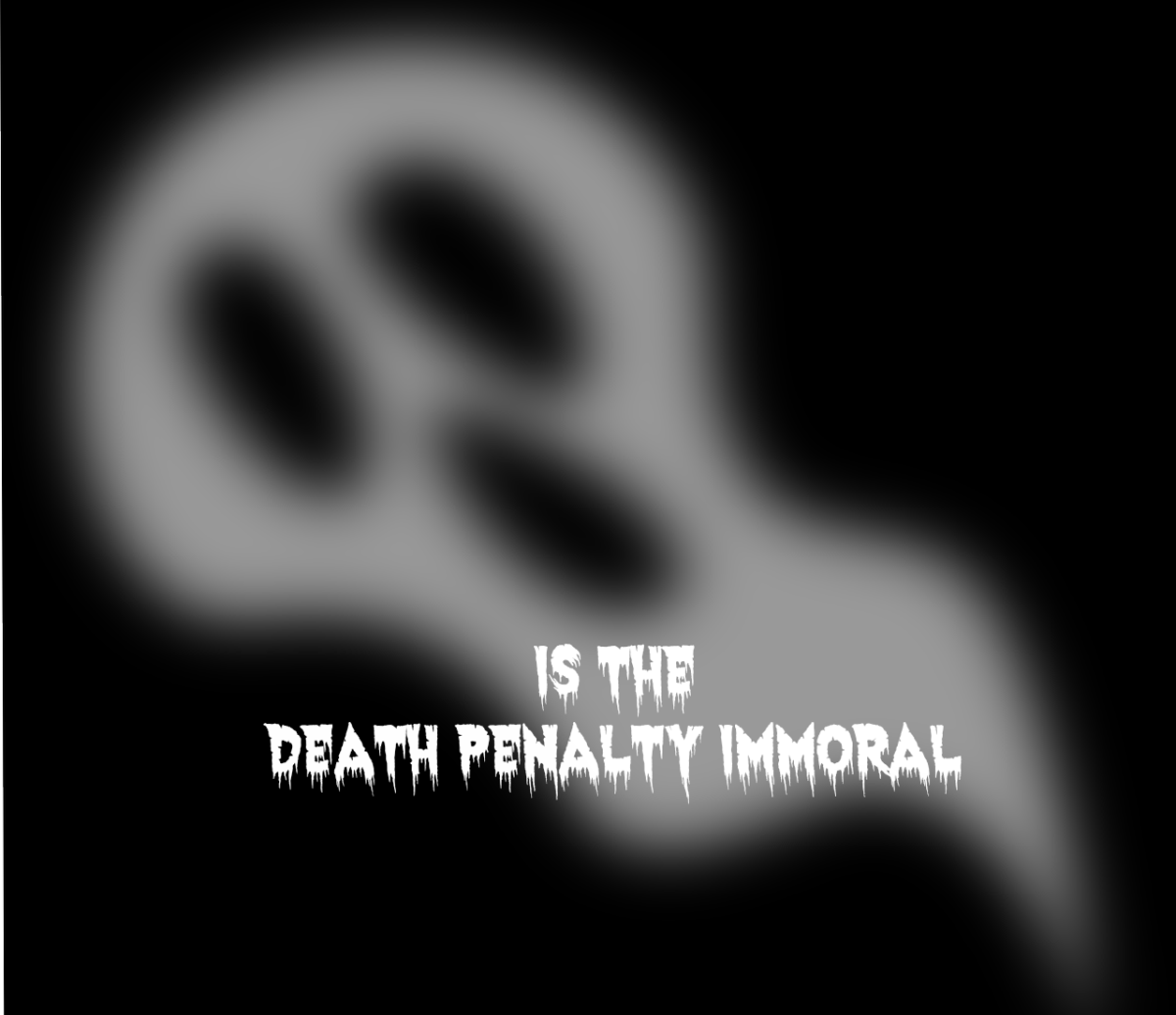Does the New Testament Ban the Death Penalty?

Introduction
Many arguments have been made against the death penalty. One common argument is whether or not capital punishment is "humane." I deal with that question in another article. In this essay I consider arguments made by opponents of the death penalty (DP) while invoking the New Testament (NT) for support. While not every opponent of the DP invokes the Bible, some that do say that the DP is retaliation, an act of vengeance that is incompatible with the NT ethic of mercy and forgiveness. The argument goes something like this:
It's no more right for the government to take a life than it is for a person to do so. The Bible explicitly prohibits vengeance. Christianity is first and foremost an ethic of love and toleration. Love demands forgiveness. We can see this in Jesus’ command that we forgive one another. He told us not to be judgmental and to those that were going to stone the woman taken in adultery, he challenged only those without sin should cast the first stone.
A Response from the Unconvinced
Opponents of the DP offer explanations for several biblical verses dealing with forgiveness and reconciliation. However, they leave unexplained those areas where the Bible sanctions the use of force against wicked men. Furthermore, opponents proceed as if the Old Testament (OT) operates on a different ethic than does the NT, with the OT prescribing wrath, vengeance, and judgment, and the NT prescribing peace, reconciliation, and nonjudgmentalism.
It does not.
The ethic of the OT and the NT are one ethic. Granted: God's self revelation of his character is fuller at the end of the Bible than at the beginning. But the Bible prescribes both mercy and judgment in both testaments. Those that say that the NT does not teach judgment conveniently pass over passages that support the state’s role as a terror to evil doers (like Romans 13:3-4, for example).
Some opponents of the DP have invoked several phrases from the Bible that they claim support their position. So, instead of providing a coherent doctrine, opponents of the DP have provided a set of slogans. Some of these phrases are
- Judge Not
- Don’t Cast Stones
- Turn the other Cheek
- Vengeance Belongs to God
- If You Live By the Sword, You Die By the Sword
Judge Not
The passage in Matthew 7:1 which says “Judge not that ye be not judged” should get an award for being one of the Bible verses most abused in application. Jesus was telling the Pharisees not to judge in their current condition; he was not forbidding the condemnation of wrongdoing.
First, Jesus states the principle in Matthew 7:1
Judge not, that ye be not judged.
Then, in vss. 3-5 Jesus gives an example clarifying the context of the statement:
And why beholdest thou the mote that is in thy brother's eye, but considerest not the beam that is in thine own eye? Or how wilt thou say to thy brother, Let me pull out the mote out of thine eye; and, behold, a beam is in thine own eye? Thou hypocrite, first cast out the beam out of thine own eye; and then shalt thou see clearly to cast out the mote out of thy brother's eye.
A specific group is being addressed in this passage—hypocrites. Jesus is saying, “hypocrites, don’t you judge.” But note that they are not hypocrites because they judge, they are hypocrites because they judge wrongly. Note also the example that Jesus gives is of a man who is trying to correct a condition in someone else when he suffers the same shortcoming.
For with what judgment ye judge, ye shall be judged: and with what measure ye mete, it shall be measured to you again (Matthew 7:2).
This intuitively makes sense to all of us: how can the man who is having an affair counsel another man to stop having one? If you do such a thing you also are judged by the same standard that you mete out to others.
The passage is not teaching that you never judge. Note that the instruction at the end of the illustration is to “cast the beam out of thy own eye; and then shalt thou see clearly to cast out the mote out of thy brother’s eye.” Furthermore, Jesus also said in John 7: 24 to “Judge not according to the appearance, but judge righteous judgment.” So there is a judgment to be made, but it is not the judgment of the hypocrite (judging according to “appearances”); it is the judgment of the righteous. Jesus even praises Peter in telling him in Luke 7:43, “Thou hast rightly judged.” Finally, there are several other passages where judging is either expected or praised (Luke 12:56-57; John 5:45; Rom. 3:19; 1 Cor. 2:15; 1 Cor. 6:2-5).
A second problem with opponent’s use of the “judge not” passage is that Jesus was talking to individuals, not rulers. Citizens while in their occupation as law officers have powers in those positions that I do not have as a citizen. I can’t go to a judge, get a court order, forcibly enter a residence not mine, put a gun in a man’s face and tell him to surrender. But under some conditions, a law enforcement officer can. So we recognize that law officers have some powers in their capacity as civil servants that I lack.
Finally, opponents apply the passage arbitrarily. Certainly, opponents are not suggesting that we never make judgments on any acts of wrongdoing. It seems that using it for just the DP and not, say, imprisonment, is selective. Judgment is essential to all of life. If we do not judge, there is no moral discernment. When we say that the Nazis were wrong, we are judging. When we say that South African Apartheid was wrong, it’s a moral judgment. Opponents need to apply the principle in a more general way and stop applying it selectively.
Don’t Cast Stones
Another issue often raised by opponents relating to “judge not” is “casting stones.” The phrase “casting stones” comes from the passage in John 8 in which a woman was forcibly brought to Jesus and accused of adultery. Jesus, addressing the crowd of witnesses said “He that is without sin among you, let him first cast a stone at her (John 8:7).” No one ever did come forward to accuse her and she was, apparently, released unharmed.
The argument by opponents is that “we can’t cast stones (that is, accuse others) because there are times when we've been wrong too.” The problem with this interpretation is that Jesus is not teaching that no one should ever judge or punish wrongdoing because the accusers have also sinned in the past. That this is not the correct interpretation of the passage should be obvious from the discussion about not judging. In the “judge not” passage, the “hypocrite” was told to first remove the beam from his own eye so that he could help his brother.
In the “casting stones” passage, Jesus was simply restating the legal principle that the person that was privy to the crime, but was not a part of the conspiracy was the one “without sin.” Such a person was to cast the first stone (see Leviticus 24:13-4; Deut. 17:7) There is no reason to believe that Jesus is speaking of “sin” in the universal sense since there is a specific sin on the table, namely, adultery. When Jesus says to the woman “where are those thine accusers (vs. 10)?” is Jesus’ reference here universal or specific? I don’t think Jesus is asking her “is there anyone here that has ever seen you do something wrong?” He’s speaking of those that might accuse her of the specific crime of adultery. She responds that there is no one to accuse her. Besides, the casting of stones (the death penalty) was not administered because of the universal condition of sinfulness, but because of a specific crime that warranted death.
We should expect Jesus, the man that said “I am not come to destroy [the law and the prophets], but to fulfill (Matt. 5:17)” to prescribe the Mosaic Law in a legal matter involving a crime. Jesus tells the people that those that sit in “Moses seat” should be obeyed (Matthew 23:2-3). Jesus also tells the man that he healed of leprosy to fulfill the Mosaic requirement by showing himself to the priest and giving the gift (Matt. 8:4). Furthermore, Jesus chastised the Pharisees, apparently because they were neglecting their parents in not obeying the Mosaic law (Mark 7:9-13). Jesus taught men to keep the law, saying that those that do the commandments and teach others to do them “shall be called great in the kingdom of heaven (Matthew 5:19).”
Another misconception by opponents with this passage is that Jesus forgave the woman. But that's an assumption, one not grounded in the text. The woman does not ask for forgiveness and nowhere does it indicate that Jesus offered her forgiveness. Jesus said that he did not condemn her based on the truth that the law did not condemn her. This passage has nothing to do with the forgiveness of sin, but rather the condemnation of criminal behavior. Jesus told her “go and sin no more (vs. 11).”
Dr. Alan Keyes and Barack Obama Debate the Death Penalty & Abortion (2004)
Turn the Other Cheek
Another passage often ripped from its context is the phrase “turn the other cheek,” the passage in Mat. 5:38-39 which says,
Ye have heard that it hath been said, An eye for an eye, and a tooth for a tooth: But I say unto you, That ye resist not evil: but whosoever shall smite thee on thy right cheek, turn to him the other also.
Some opponents will say that we must not use the DP but must “turn the other cheek.” The problems with the use of this verse in this context is that opponents selectively use this only to apply to capital punishment; they don’t use it for all crimes. Do opponents want us to “turn the other cheek” when it comes to employers denying a job based on gender, pro life demonstrators that obstruct a woman’s entrance into an abortuary, or teacher-led prayer in schools?
Opponents sometimes portray Jesus as revealing a radical ethic when he tells people to turn the other cheek. But this was not a new ethic; it was an old one, as old as the Levitical Code. Both the OT and the NT taught that men should not to seek personal revenge. It is Leviticus 19:18 that says
Thou shalt not avenge, nor bear any grudge against the children of thy people, but thou shalt love thy neighbour as thyself: I am the LORD.
Furthermore, Solomon said in Prov. 24:29
Say not, I will do so to him as he hath done to me: I will render to the man according to his work.
Jesus is giving an individual ethic of forgiveness and a method for handling problems. Sometime we have to bite the bullet in order to improve relations with others. Turning the other cheek will often do that. However, this does not apply to those areas that are beyond our obligation to forgive. If a person is physically assaulted, he should forgive the assailant for the wrong done to him. At the same time, that victim should fully cooperate with authorities so that the assailant can be punished by authorities, discouraging or stopping him from harming others the way they harmed him.
Finally, Jesus is talking to individuals, not officials. Jesus is not giving an ethic for government when he says “turn the other cheek.” It’s not the state’s role to forgive, but to punish, to act as a terror to evil doers (Romans 13:3-4). The government is not to "turn the other cheek" by releasing murderers, rapists, or kidnappers.
Vengeance Belongs to God
Since 9-11 much has been said about whether or not governments should pursue vengeance against their enemies. Some opponents say that government should not pursue vengeance because vengeance belongs to God. Rather, governments should seek to reform and reconcile with its foes. Very often, the passage given is the one in Romans 12:19 which reads:
Dearly beloved, avenge not yourselves, but rather give place unto wrath: for it is written, Vengeance is mine; I will repay, saith the Lord.
Opponents are right when applying this passage to individuals. We should not seek retaliation for the personal wrongs we experience.
The passage follows by saying “but rather give place unto wrath.” What does “give place unto wrath” mean? The next chapter (Romans 13) tells us. The proper “place” for wrath is civil government which calls the government “a revenger to execute wrath upon them that doeth evil (Romans 13:4).” So the state is the proper place for wrath and its role, in part, is to terrorize those that do evil.
In a society where elected officials provoke more terror against praying school children than they do jihadists, you’ll have innocent people fleeing: schools, buses, cafes—to escape bombings and shootings. But if government will do its job and pursue the terrorists and invoke terror on them, then the terrorists will be doing the fleeing: fleeing to another country, or to a cave somewhere in Afghanistan.
The civil authority acts as a terrorizing agent against “evildoers.” While in our individual capacity we are called upon to forgive and show mercy, the government has no such responsibility. There simply is no role for the state to forgive wrongdoing. Rather, it's to use the sword on those that would terrorize the innocent.
Live by the Sword, Die by the Sword
A further objection to the DP by opponents comes from Jesus’ admonition to Peter when Peter used a sword to cut off Malchus’ ear (John 18:10). Jesus told Peter that “those that live by the sword die by the sword.” Opponents have interpreted this as Jesus’ chastising Peter for using violence. On this point, I’d agree with them. However, keep in mind that Jesus is talking to Peter who is not a state official. This advice is sound: if you live a violent life, you are likely to die violently. Consider the gang member or thug in organized crime. When people get involved in these cliques, their chances of dying a violent death go up.
Jesus’ words can also be taken as a truism. As a general rule, those that live by the sword do die by the sword. Soldiers, for example, use deadly force and often die by deadly force. The same can be said for police officers. But when speaking to Peter, Jesus is not speaking to a public official. In fact, Jesus never condemns a peace officer for being a peace officer. Jesus praised a centurion for his faith, saying that “I have not found so great faith, no, not in Israel.” But Peter was not a soldier or a peace officer. So there's no conflict with Romans 13 which sanctions a state that imposes terror on evil doers.
Conclusion
In conclusion, opponents of the DP lack a solid defense from the NT for their position. Passages that discourage retaliation and vengeance are given to people in their individual capacities. However, at the same time the state bears the responsibility to pursue those that terrorize the innocent. The state should pursue such people, and in some cases, kill them.
The New Testament and the Death Penalty
Does the New Testament of the Bible Support the Death Penalty?
© 2009 William R Bowen Jr








